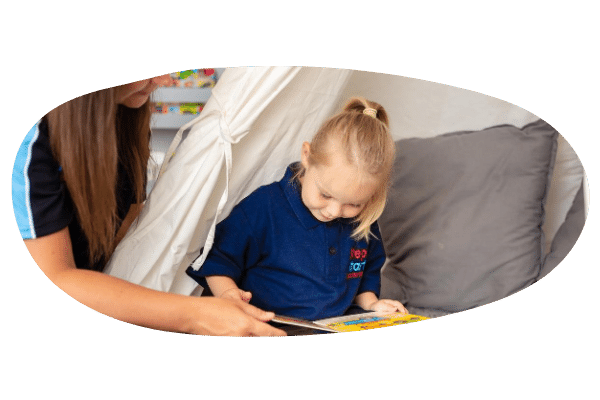
Communicating with Your Child
You do not need to be an expert to help your children to develop and learn good communication skills. All you need is a willingness to listen and talk.
Communication is essential from the very beginning, providing your children with a wide range of vocabulary and always allowing time to talk to your child with little distraction. Good communication in the early years supports further communication as children grow in to teenage and adult years.
Top tips for talking:
- Talk to your child when you’re playing together.
- Get into their zone and talk about what they are looking at or playing with – they will learn language faster that way.
- Have fun with nursery rhymes and songs, especially those with actions.
- Encourage your child to listen to different sounds, such as cars and animals. This will help your child’s listening skills.
- Gain your child’s attention when you want to talk. Take yourself down to their level.
- Increase vocabulary by giving choices, e.g. “Do you want juice or milk?”
- Talk about things as they happen, for example, when you’re both unpacking the shopping.
- Listen carefully and give your child time to finish talking. Take turns to speak.
- Always respond in some way when your child says something.
- Help your child to use more words by adding to what they’ve said, e.g. if they said “ball” you might say, “Yes, it is a big, red ball.”
- If your child says something incorrectly, say it back the right way. For example “ goggy jump” you would say “ Oh yes, the dog is jumping,”
- Try and have special time with your child each day to play with toys and picture books. Make sure this is part of their everyday routine.
- Limit TV time. Try to watch TV together so you can talk about what happens.
The benefits of talking to your child are huge, these include stimulating your babies’ brain at the very beginning to make connections increasing their understanding and development skills. Showing love, care and respect for your child as an individual and giving them time to communicate. Developing the bond between child and parent.



 Book Tour
Book Tour


